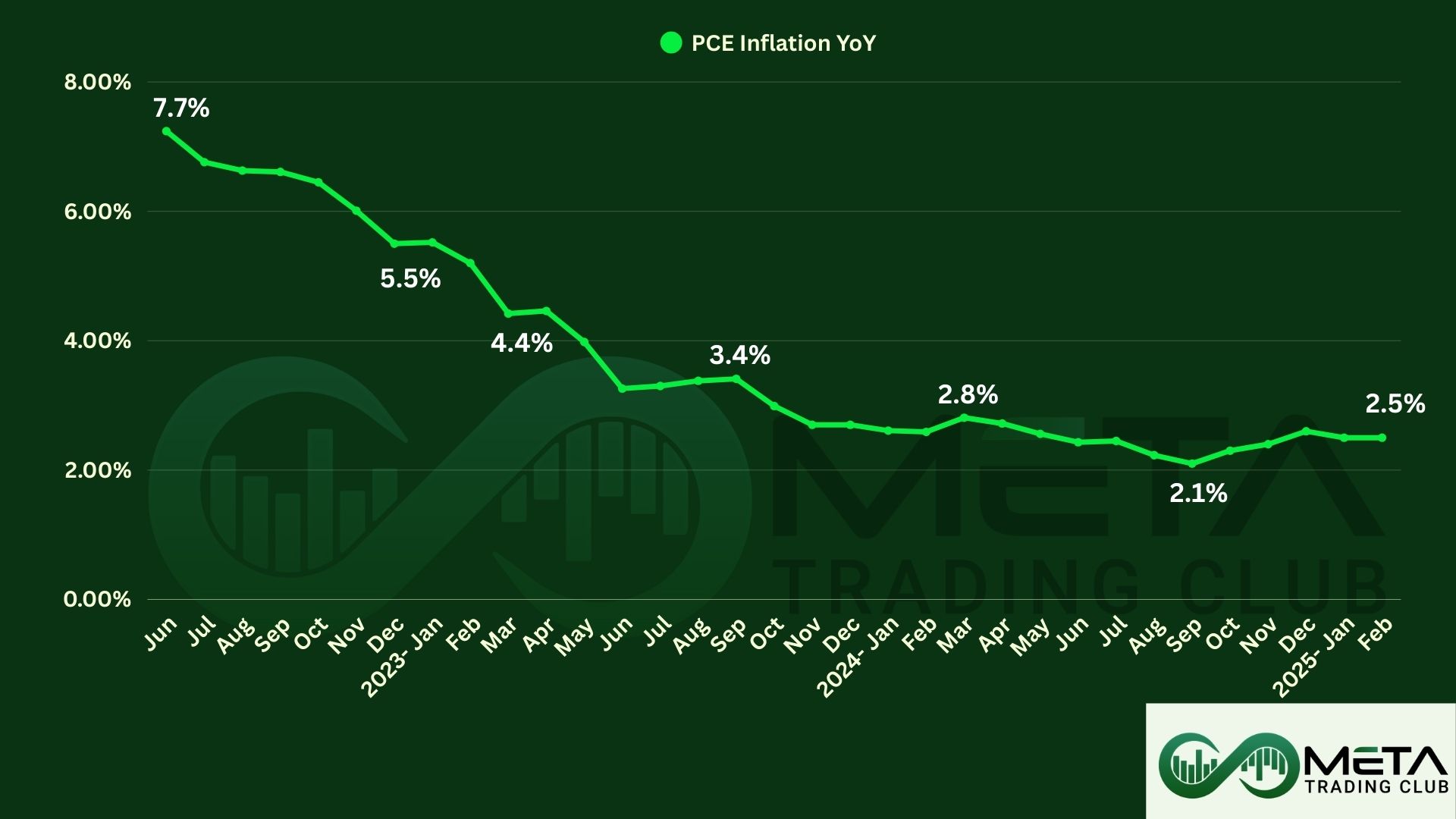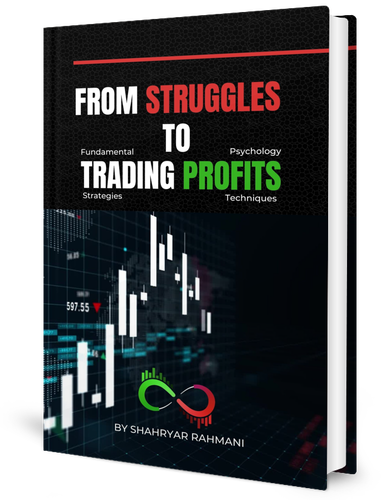Entering the world of trading can be an exhilarating yet intimidating experience for beginners. The financial markets are vast and can be complex to understand, and the possibility of both significant gains and losses can lead to a high level of nervousness among new traders. This article aims to explore why beginner traders often feel nervous when starting out, the impact of this nervousness on their trading decisions, and strategies to manage and overcome these feelings.
Table of Contents
Understanding Nervousness in Beginner Traders
Trading has always been a high-stakes game, whether it’s on the floor of a bustling stock exchange or within the digital realms of online platforms. But every trader, no matter how experienced they are, faces a hefty dose of nerves in trading. Without prior experience, beginners often feel unprepared. This lack of familiarity with the process or environment can lead to mistakes, which in turn can increase nervousness. Beginners often question their abilities and decisions, leading to a lack of confidence. This self-doubt can be paralyzing and prevent taking necessary actions. Also, the desire to perform well and meet expectations can add significant stress. Let’s explore how traders coped with their initial anxieties.
Understanding the Anxiety
For novice traders, the nervousness stems from a fear of the unknown and the potential for loss. When starting something new, the lack of familiarity can be intimidating. This fear stems from not knowing what to expect, which can lead to anxiety about potential outcomes. For example, a beginner trader might worry about market fluctuations they don’t yet understand.
Also, there’s a constant internal battle between the desire to make profitable moves and the fear of making catastrophic mistakes. This anxiety is compounded by the need to act quickly and decisively, as markets can shift dramatically within minutes.
Learning and Adaptation
Successful traders often share stories of their early struggles with nerves. However, they also emphasize the importance of education and preparation. Many spent countless hours learning about market trends, financial analysis, and the economic factors that influence trading decisions. This provided them with the confidence needed to make informed decisions, gradually easing their initial anxieties. In order to boost your trading skills, you can participate in our 4-weeks incubator program.
The Role of Mentors
Mentorship plays a critical role in the development of a trader. In the early days, having an experienced trader to guide, teach, and reassure can make a significant difference. Mentors not only impart practical knowledge and strategies but also help novices manage their emotions and maintain perspective. The reassurance from someone who has navigated the same waters and survived can be incredibly comforting.
Technology as a Buffer
Today, technology also plays a significant role in soothing the nerves of new traders. With advanced analytics, simulation software, and a plethora of educational resources available online, beginners can enter the trading arena better prepared than ever before. Virtual trading platforms allow novices to experience the market and flows without financial risk, building their confidence.
Emotional Resilience
Building emotional resilience is perhaps the most critical aspect of a trader. The ability to keep a cool head and stay focused despite setbacks is what differentiates successful traders from those who falter. Techniques such as mindfulness, meditation, and stress management are increasingly recognized as vital components of a trader’s arsenal against anxiety.
Causes of Nervousness in Beginner Traders
Nervousness in beginner traders can stem from several key factors. Let’s explore these in detail:
Lack of Knowledge
One of the primary reasons beginners feel nervous is the lack of understanding of the markets and how trading works. The array of financial instruments, trading platforms and market indicators can overwhelm anyone new to the space.
Fear of Loss
The possibility of losing money is perhaps the biggest fear that haunts new traders. Unlike other professions, trading has a very tangible risk of financial loss, which can be immediate and significant.
Overwhelming Information
The modern trading environment is flooded with information, from global economic news to financial reports and market commentary. Deciphering what information is relevant and understanding its impact on the markets can be daunting for a novice trader.
High Expectations
Often, beginner traders enter the market with high expectations of making quick profits. These unrealistic expectations can lead to anxiety and fear when the market does not behave as anticipated.
Emotional trading
Trading can be an emotional rollercoaster, and for beginners, the highs and lows can be stressful. The nervousness often stems from too much emotional trading in the outcomes of trades.
Impact of Nervousness on Trading
Nervousness can cloud judgment, leading to poor trading decisions. Beginners might react hastily to market movements, overtrade, or exit profitable trades too early. Fear can also cause paralysis by analysis, where a trader is so afraid of making a mistake that they miss good trading opportunities. Stress can have significant negative consequences on trading performance. Here are some key ways in which stress can impact traders:
Impaired Decision-Making
- Emotional Decisions: Stress can lead to emotional decision-making, where traders act based on fear or greed rather than rational analysis. This can result in impulsive trades that deviate from their trading plan.
- Hesitation: High stress levels can cause hesitation, leading to missed opportunities or delayed reactions to market movements.
Reduced Focus and Concentration
- Distractions: Stress can make it difficult to concentrate, leading to distractions and mistakes. Traders may overlook important details or fail to notice critical market signals.
- Mental Fatigue: Prolonged stress can lead to mental fatigue, reducing a trader’s ability to stay focused and alert during trading sessions.
Increased Risk-Taking
- Overtrading: Stress can drive traders to overtrade in an attempt to recover losses quickly, leading to increased risk and potential for further losses.
- Ignoring Risk Management: Under stress, traders might neglect their risk management strategies, such as setting stop-loss orders, which can result in significant financial losses.
Emotional Exhaustion
- Burnout: Continuous stress without adequate breaks can lead to burnout, where traders feel emotionally drained and lose motivation. This can negatively impact their ability to trade effectively.
- Mood Swings: Stress can cause mood swings, making it difficult for traders to maintain a stable emotional state. This instability can affect their trading decisions and interactions with others.
Decreased Overall Performance
- Lower Profitability: The combined effects of impaired decision-making, reduced focus, increased risk-taking, and emotional exhaustion can lead to lower profitability and overall trading performance.
- Loss of Confidence: Continuous stress and poor performance can erode a trader’s confidence, making it even more challenging to trade effectively.
Strategies to Overcome Nervousness
Overcoming nervousness in trading involves a combination of psychological techniques, practical strategies, and lifestyle adjustments. Here are some effective strategies to help you manage and reduce trading-related anxiety:
Education and Research
The best antidote to fear is knowledge. Beginners should invest time in learning about the markets, the principles of trading, analysis techniques, and the instruments they are interested in trading.
Start with a Demo Account
Practicing with a demo account can help mitigate the fear of losing real money. It provides a safe environment to learn how to trade without the financial risk.
Set Realistic Goals
Beginners should set achievable and realistic trading goals to avoid undue pressure. It’s important to understand that losses are part of the trading process and should be factored into the expectations.
Develop a Trading Plan
A well-thought-out trading plan can provide a sense of security and structure. It should include entry and exit rules, risk management strategies, and criteria for choosing trades.
Mindfulness and Emotional Regulation
Techniques such as mindfulness can help manage emotions and maintain clarity of thought. Staying calm and composed can help traders stick to their trading plans and make rational decisions.
Gradual Exposure
Starting with smaller trades or a limited number of transactions can help build confidence. As beginners gain more experience and knowledge, they can gradually increase their trading activity.
Networking with Other Traders
Joining trading forums, attending seminars, and networking with more experienced traders can provide support and valuable insights. Learning from the experiences of others can be incredibly reassuring.
What Characteristics Should a Trader Have to Overcome Trading Stress?
To effectively manage and overcome trading stress, traders should cultivate several key characteristics:
Discipline
- Adherence to Plan: Sticking to a well-defined trading plan helps avoid impulsive decisions driven by emotions.
- Consistency: Regularly following a routine and maintaining consistency in trading practices can reduce stress.
Patience
- Long-Term Perspective: Understanding that not every trade will be profitable and having the patience to wait for the right opportunities.
- Avoiding Overtrading: Patience helps in avoiding the temptation to overtrade, which can lead to unnecessary stress and losses.
Resilience
- Handling Losses: The ability to bounce back from losses and view them as learning experiences rather than failures.
- Persistence: Continuously striving to improve and not giving up in the face of setbacks.
Emotional Control
- Managing Emotions: Keeping emotions like fear and greed in check to make rational decisions.
- Stress Management Techniques: Practicing mindfulness, meditation, or other relaxation techniques to maintain emotional equilibrium.
Adaptability
- Flexibility: Being able to adapt to changing market conditions and adjust strategies accordingly.
- Continuous Learning: Staying updated with market trends and continuously improving trading skills.
Analytical Skills
- Data Analysis: The ability to analyze market data effectively to make informed decisions.
- Critical Thinking: Evaluating different scenarios and potential outcomes to minimize risks.
Confidence
- Trust in Strategy: Having confidence in your trading strategy and decisions, which can reduce second-guessing and stress.
- Self-Belief: Believing in your abilities and maintaining a positive mindset even during challenging times.
Healthy Lifestyle
- Physical Fitness: Regular exercise and a healthy diet can improve overall well-being and reduce stress.
- Work-Life Balance: Ensuring a balance between trading and personal life to prevent burnout.
Final Words
Nervousness is a natural part of starting any new venture, particularly one as challenging as trading. However, by understanding the sources of their anxiety, educating themselves, and adopting systematic risk management strategies, beginner traders can significantly reduce their nervousness. Over time, with experience and continued learning, the confidence of a trader will grow, allowing them to navigate the markets with greater assurance and success.
By addressing the psychological hurdles as well as the technical aspects of trading, beginners can set themselves up for a more positive and potentially profitable trading journey. Remember, the key to successful trading lies not just in the strategies one employs, but also in the mindset with which one approaches the markets.
Having a clear plan can help reduce uncertainty and stress. Regular exercise, meditation, and hobbies can help keep your mind calm. Only invest what you can afford to lose and use stop-loss orders. Consider finding a mentor or joining a trading community for advice and support.
To overcome fear in trading, start by educating yourself thoroughly about the markets and trading strategies. Practice with a demo account to build confidence and develop a solid trading plan with clear risk management rules to minimize potential losses.
Yes, trading can cause anxiety due to the financial risks and market volatility involved. Managing stress through education, practice, and a solid trading plan can help mitigate anxiety.
To stay calm while trading, take regular breaks to avoid burnout, practice mindfulness or deep-breathing exercises, and stick to your trading plan to reduce impulsive decisions. Keeping a trading journal can also help you reflect and improve your strategies.
The biggest fear in trading is often the fear of losing money. This fear can lead to hesitation, poor decision-making, and missed opportunities. Managing this fear involves having a solid trading plan, practicing risk management, and maintaining emotional discipline.















